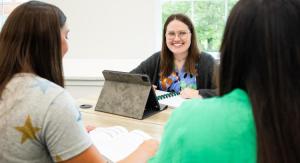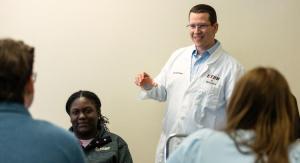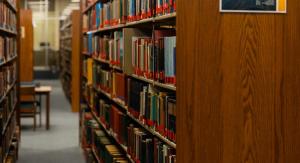The Department of Mathematics offers programs of study with a major or minor in mathematical sciences, a major or minor for secondary-level teacher certification in mathematics, and a major for grades 4-8 certification in mathematics.
For students taking mathematics courses, the department is committed to teaching the fundamental skills and techniques of mathematics, developing mathematics as a mode of thought, and encouraging attitudes, habits, and ideals inherent in the study of mathematics, including the desire to pursue further study.
Students completing the Mathematics major will
- Understand key components of undergraduate mathematics as recommended by MAA and TEA.
- Have the ability to solve mathematical problems using calculus or techniques learned in applied mathematics courses.
- Have the ability to construct proofs.
- Have a broad understanding of mathematics so that they perceive they are prepared for a career or graduate study in mathematics
The mathematics major, in accordance with a recommendation of the Mathematical Association of America (MAA), has been designed to reflect a more applied orientation demanded for today’s career opportunities. To provide this more versatile curriculum, the major is designated as “mathematical sciences.” The course requirements for the major in mathematical sciences provide preparation for industrial positions, graduate study in mathematics, and a variety of other career options.
STUDENT LEARNING OUTCOMES
- Graduates with a major in mathematical sciences will exhibit mastery of the content in their field by assessing appropriate methods to solve problems and by developing proofs of mathematical statements.
- Graduates with a major in mathematical sciences will be able to discriminate among various calculus techniques and be able to apply them to problems requiring differential, integral, and multivariate calculus.
- Graduates with a major in mathematical sciences will be able to evaluate various mathematical techniques learned in applied mathematics courses and solve problems related to those applied mathematics courses.
- Graduates with a major in mathematical sciences will demonstrate the ability to construct mathematically rigorous and logically correct proofs.
Courses
General Education Requirements - 46 hours
English 1301, 1302, and three hours sophomore literature - 9 hours
Fine Arts (three hours from music, theatre, fine arts, art, or equivalent - 3 hours
Christian Ministry 1301 and 1302 - 6 hours
History - 3 hours
Political Science 2305 - 3 hours
Social Science (CJUS, ECON, GEOG, PSYC, SOCI) - 3 hours
Physical Activity - KINE 1238 - 2 hours
Science (PHYS 1401 and four additional hours of lab science) - 8 hours
Mathematics - 6 hours
Communication 1311, 1315, or 1318 - 3 hours
Completion of thirty-five (35) semester hours:
MATH 2401 Calculus I
MATH 2402 Calculus II
MATH 3300 Foundations of Mathematical Reasoning
MATH 3403 Calculus III
MATH 3306 Differential Equations
MATH 3308 Linear Algebra
MATH 3322 Numerical Analysis
MATH 4200 Capstone Course in Mathematics
MATH 4305 Abstract Algebra
MATH 4307 Real Analysis
One course from the following:
MATH 4302 College Geometry
MATH 4303 Probability and Statistics*
*Note: MATH 1342 or successful performance on a departmental statistics examination is a prerequisite for MATH 4303.












